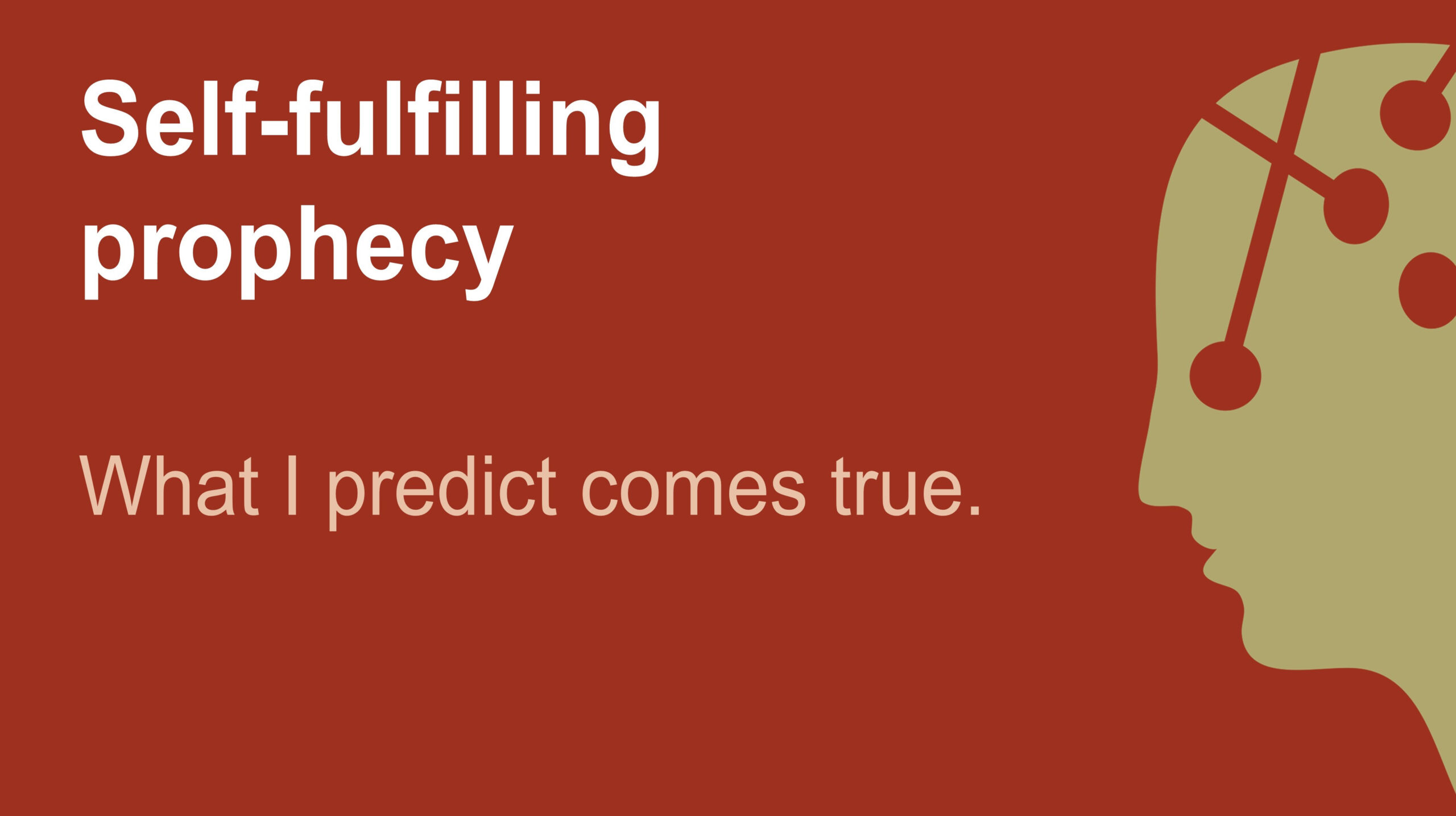The self-fulfilling prophecy is a cognitive bias that occurs when individuals hold a belief or expectation about a future event or outcome, and their behavior or actions influence the realization of that belief or expectation. In essence, people’s actions align with their preconceived notions, leading to the fulfillment of their predictions.
Explanations:
Self-fulfilling prophecies often occur due to the power of suggestion and the influence of expectations on behavior. When people believe that something will happen, they may unconsciously behave in ways that make it more likely to occur.
Examples:
Relationships: If someone believes their partner will be unfaithful, their jealousy and mistrust may lead to behavior that drives their partner away, fulfilling the expectation.
Academic Performance: A student who believes they will fail an exam may not study adequately, ultimately leading to poor results consistent with their expectation.
Leadership: If a manager expects an employee to perform poorly, they may provide less support and fewer opportunities for growth, resulting in the employee’s underperformance.
Solutions:
Positive Expectations: Foster positive beliefs and expectations in yourself and others to encourage actions and behaviors that lead to positive outcomes.
Open Communication: Encourage open and honest communication to address and challenge negative expectations or beliefs.
Mindfulness: Be aware of the influence of your own beliefs and expectations on your actions and behavior. Mindfulness can help you recognize when you’re falling into a self-fulfilling prophecy pattern.
Setting Goals: Set clear and achievable goals to guide behavior and actions in a positive direction.
Addressing self-fulfilling prophecies involves recognizing the impact of one’s beliefs and expectations on their actions and behavior. By fostering positive expectations and open communication, individuals can work to avoid negative self-fulfilling prophecies and encourage more favorable outcomes.
